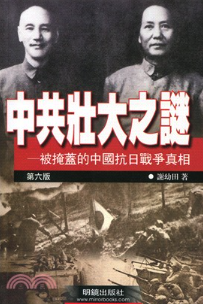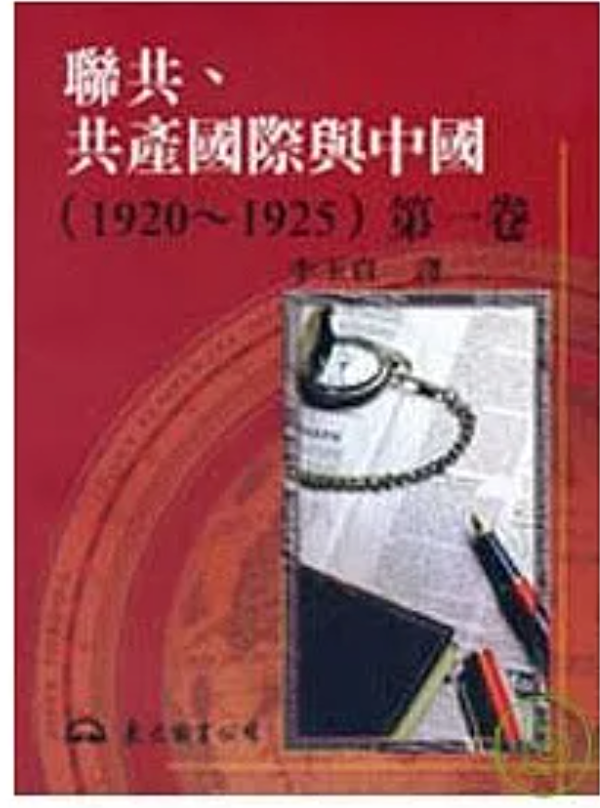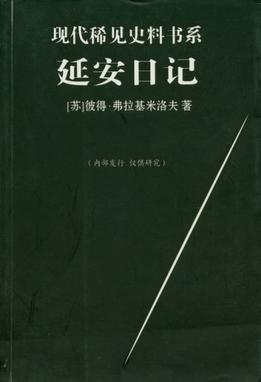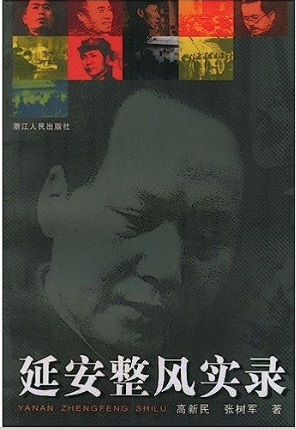Explore the collection
Showing 28 items in the collection
28 items
Book
The Mystery of the Growth of the CCP
The author of this book, Xie Youtian, a former researcher at the Sichuan Academy of Social Sciences, was invited to be a visiting scholar at Stanford University in the late 1980s and a guest researcher at the Hoover Institution. This book describes how the Chinese Communist Party took advantage of the Japanese invasion of China to build up its strength and eventually gained power. It was published by Mirror Books in Hong Kong in 2002.
Book
The Realm of Historiography
This book is a compilation of some of Gao Hua's speeches, book reviews, commentaries on current affairs, reviews of student papers, and lecture transcripts. It includes his studies and reflections on themes around revolution, civil war, and nationalism, his comments on the works of Long Yingtai, Wang Dingjun, and Mao Zedong, and his observations on Taiwan's social and political realities during his visits to Taiwan. In addition, the book contains a selection of Gao Hua's lecture notes on the theory and methodology of historiographical research, as well as on the production of official historical narratives and the development of folk history, enabling readers to gain further understanding of the philosophy and methodology behind Gao Hua’s research.
The book was published by Guangxi Normal University Press in November 2015 before the fourth anniversary of Gao Hua's death, for which the publisher was disciplined by the Central Propaganda Department and the State Administration of Press, Publication, Radio, Film and Television.
Book
The United Communist Party, The Communist International and China (1920-1925)
The author, Li Yuzhen, published this book in 1997. The contents are all taken from the declassified archives of the former Soviet Union. Almost all of the 205 documents in this book are published for the first time. The documents reveal the various dimensions of Moscow's relations with China from 1920 to 1925 as well as little-known inside stories. It shows that the Communist Party of the Soviet Union was the real decision-maker of the Comintern. This book shows the complex relationship between China and the Soviet Union, the Chinese Communist Party and the Comintern, the Chinese Communist Party and the Kuomintang, and Moscow and the various political forces in the Chinese court from different perspectives. It provides important clues for the study of history.
Book
The Vladimirov Diaries: Yenan, China 1942~1945
The author of The Vladimirov Diaries: Yenan, China, 1942~1945, Peter Vladimirov (Sun Ping in Chinese) was a Soviet citizen. The book was first published in the 1980s by Oriental Publishing House and reprinted in March 2004. Peter traveled to Yan'an from 1942 to 1945 as a liaison officer of the Comintern and a correspondent for the TASS news agency. He kept a diary of the political, economic and cultural aspects of Yan'an, including its opium economy. Against the background of the relationship between the CCP and the Soviet Union during the War of Resistance against Japanese Aggression, the book describes the CCP's Rectification Movement and the Seventh National Congress. It also comments on the CCP's contact with the U.S. Military Observer Group stationed in Yan'an at the time and on the relationship between the CCP and the Kuomintang.
Book
Who is the New China
Author Xin Hao Nian tries to analyze the modern history of China since the Xinhai Revolution. He pointsout that the People's Republic of China (PRC) is a restoration of the authoritarian system, and the Republic of China (ROC) represents China's road to a republic. The first volume of the book defends and clarifies the history of the Kuomintang (KMT), arguing that the KMT is not a "reactionary faction" as claimed by the CCP. The second volume criticizes the revolution and history of the CCP. The book was first printed in 1999 by Blue Sky Publishing House (USA) and reprinted in June 2012 by Hong Kong's Schaefer International Publishing. It is banned on the mainland.
Film and Video
Why Are Flowers So Red
This film follows the stories of environmental activist Tan Zuoren and artist Ai Weiwei. In July 2009, Tan Zuoren was charged with the crime of “Inciting subversion of state power,” and his trial was held in Chengdu, Sichuan Province. Ai Weiwei was invited by Tan’s lawyer to testify in court, but the night before the trial, he was assaulted by the police and detained in a hotel. To everyone’s surprise, Ai turned on the tape recorder before the police entered his residence and managed to record the incident. Later, Ai and his colleagues released a documentary about this incident, titled “Disturbing the Peace” (or “Laoma Tihua”).
This film interviews the people behind the scenes of “Disturbing the Peace,” including the director, photographers, editors, and audiences of the film, who discuss the relationship between citizens and government authority.
This series of films are in Chinese with Chinese subtitles.
Book
Yan'an Rectification
The Rectification Movement took place in Yan'an, North Shaanxi Province, in the 1940s. This book, written by scholars within the Chinese official system, attempts to chronicle the ins and outs of the Rectification Movement in Yan'an and the base areas, analyzing its causes and the logical development of its results. It is rich in information that is only found here. This book was published by Zhejiang People's Publishing House in 1999.
Film and Video
Beijing's Petition Village
In China, individuals can complain to higher authorities about corrupt government processes or officials through the petition system. The form of extrajudicial action, also known as "Letters and Visits" (from the Chinese xinfang and shangfang), dates back to the imperial era. If people believe that a judicial case was concluded not in accordance with law or that local government officials illegally violated his rights, they can bring it to authorities in a more elevated level of government for hearing, re-decide it and punish the lower level authorities. Every level and office in the Chinese government has a bureau of “Letters and Visits.” What sets China’s petitioning system apart is that it is a formal procedure—and as Zhao Liang's documentary shows, the system is largely a failure.
A residential area near Beijing South Railway Station was once home to tens of thousands of residents from all over the country. Known as “Petition Village,” its bungalows and shacks were demolished by authorities several times, but many petitioners still clung to the land in search of a clear future. _Beijing Petition Village_ portrays the village in the midst of this upheaval, focusing on the thousands of civilians who travel from the provinces to lodge their complaints in person with the highest petitioning body, the State Bureau of Letters and Visits Calls in the province, only to repeatedly get the brush-off by state officials. Ultimately, in 2007, Petition Village was demolished for good.
The film went on to win the Halekulani Golden Orchid Award for Best Documentary Film at the 29th Hawaii International Film Festival, and a Humanitarian Award for Documentaries at the 34th Hong Kong Film Awards.







